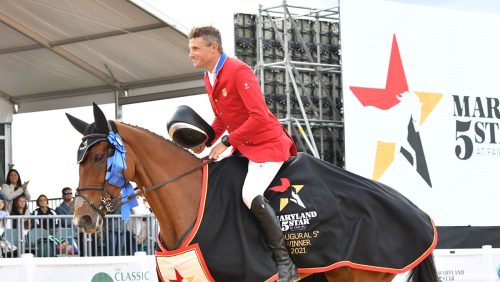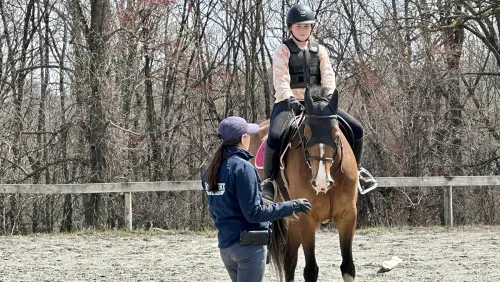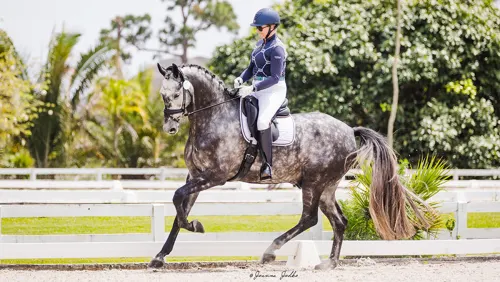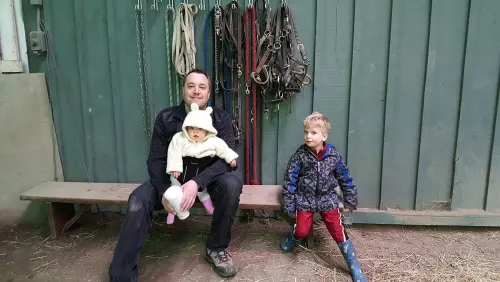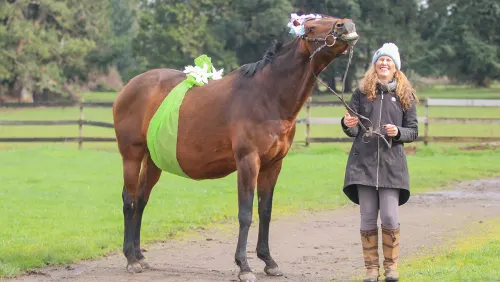With over 50 years involvement in the horse industry, I have seen a lot of change in our competitive sport.
Growing up in Western New York, we enjoyed a schedule of monthly, in-state weekend shows in Clarence, Rochester and Syracuse, with a special treat of traveling to Rolling Rock Hunt Club in Pennsylvania every summer. Now we have months at a time in Lexington, Kentucky; Traverse City, Michigan; and Ocala and Wellington, Florida.
Horse shows in the past each had their own special signature and charm that was unique to their show grounds, area and people involved. Now, with months at a time in one location, a show series becomes a destination. Families can be together, and there is a lot less travel required for the horses and staff.
There are so many more shows—maybe too many—now to choose from. Strong guidance and governance, in a fair and businesslike manner, is needed to oversee the execution of them all. It’s certainly a daunting task for any group of people.
It all leaves me with the question: Are we heading in the right direction as an industry? Like anything in life, there is always room for improvement, but are we doing the best we can?
It makes sense to strive for a balance of opportunity and choice. This would mean a combination of destination series for long-term convenience plus a selection of boutique, standalone events for those looking for the more intimate experience. Are we losing that balance? Are we doing what it takes to make sure that as many as possible are served choice with a variety of levels of competition and settings?
I compare the situation in our show world to the 1980s, when boutique shopping experiences at small, locally owned businesses, each with its own set of statements and offerings, were being replaced by malls where the shops and merchandise simply repeated from location to location. The individual statement, created by the small group of people curating the products, was lost to mass production.
ADVERTISEMENT
Classes used to be standalone performances. Winning a class used to involve taking a stroll to center ring to be greeted by someone who proudly helped make the experience happen with their personal history or generosity. There were awards, beautiful ribbons, smiles and a handshake from someone deemed “special.”
Today, this has largely been replaced with a Tupperware container of ribbons left by the in-gate, which you are expected to dig through, trying to remember which place you received or—if it hasn’t blown away—reading the results off a chicken-scratched piece of paper. The shared focus of honoring the recipients is disappearing.
Are shows losing our exhibitor-friendly atmosphere out of desperation to get through the day and meet expenses, put upon them by outside demands and groups needing a piece of the pie? The list of “extras” found on an average entry blank is getting longer and longer. Obviously as the list of expenses grows, the overall quality of service declines.
I would love to see us encourage our governing bodies to give more assistance to smaller events so that they can thrive. Expense has been one of the biggest catalysts in driving event quality, with diminishing presentations, shortened divisions and an overall decline in an exhibitor-friendly atmosphere.
We have the option to re-balance our offerings so that all kinds of shows can thrive and work together. Do we have a schedule that works for all? With support from our governing organizations and a shared standard of quality, we can encourage producing shows that are positive, customer-friendly experiences for all those paying a hefty price to attend.
Cohesively working as a unified group with committed governance to guide and produce an annual show schedule reflective of an equilibrium of choice could produce the balance needed.
Lifelong horsewoman Jennifer Burger, of Wellington, Florida, and Buffalo, New York, is the president of the National Horse Show (Kentucky), CEO of Phelps Media, past president of the U.S. Hunter Jumper Association Foundation and a member of the Devon Horse Show (Pennsylvania) board of directors. She also co-founded with Louise Serio the Brandywine Horse Show Series, which recently announced it is shutting down after running for 12 years at the Devon Horse Show grounds in Pennsylvania.






